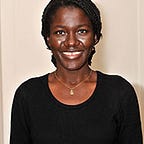Why I Chose Surgery: A General Surgery Personal Statement
This is meant to serve as an example personal statement for medical students applying into general surgery and insight for anyone interested in learning more about the training pathway to becoming a surgeon. In response to requests for advice from medical students over the past few months, below I have shared the personal statement I submitted during my residency application cycle. The final version you see here takes into account feedback I received from a senior surgery mentor to be truly personal in my statement. Following his advice to be authentic resulted in positive feedback during my interviews and in discussions that enabled me to set myself apart. I hope my narrative as a black woman serves as encouragement that there is not a set mold to what a surgeon looks like or is motivated by, that there is a place for artistic and humanistic personalities in the field of general surgery. Please feel free to reach out if you have any questions or comments.
Marveling as blood pulsed beneath my fingers, I watched the first few signs of life return to a previously cold, numb limb as an infra-popliteal bypass was elegantly performed, a fusion of science and art. Moments like this reinforced my love for surgery, seeing how masterful craftsmanship — such as this end-to-side anastomosis of a graft to the anterior tibial artery or an intricate dissection of the planes during a total parietal peritonectomy — transformed and restored the human body. I loved how nimble dexterity begot healing. As an avid knitter, I enjoy working diligently and methodically, placing each stitch to produce a new creation. In witnessing their impressive craftsmanship, I developed deep admiration for how surgeons are masterful and meticulous visionaries in dissection who craft definitive solutions to a presenting condition.
When I transitioned from shadowing cases during my first year to managing patients during my third year surgery clerkship, I was immediately struck by how a surgeon is far more than a masterful technician. At her core, a surgeon is a physical healer in whom incredible trust is placed. In addition to the tangible solutions made possible through surgery, I am also attracted to unparalleled vulnerability that is inherent to the field. In the operating room, exposed and unmoving, a patient defers their consciousness to the surgeon, who comes to know the patient — through every blood vessel and tissue — in a way that the patient can never know herself.
The unique surgeon-patient relationship became particularly clear during the care of one of my patients, Ms. Z. She was a young woman with recurrent ulcerative colitis who presented for total colectomy and end ileostomy. When I met her in the preoperative area, she was completely distraught. She frantically recounted that her decision to proceed with this surgery had been exceedingly difficult after years of medically-refractory disease. Facing a major first time surgery and wrestling with how to manage a lifelong ileostomy, she feared the uncertain and unfamiliar. Here, a condition that was originally an interesting textbook pathophysiology was now weighted with the gravity of a patient’s experience and the faith she placed in her surgeons. Further, I was continuously inspired by how this faith engendered a desire in the surgical team to go the extra mile in the patient’s post-operative care.
A sense of duty is instrumental in how I approach my life. This was instilled in me from witnessing the sacrifices my parents made when we immigrated to the United States from Cameroon — setting aside their unrealized dreams in order to tirelessly sow into their children. I remember in the moments when I thanked my mother for her dedication to us, her response was always that she was simply doing what was right and part of her obligation. Seeing this same quality in how surgeons cared for their patients confirmed that I had found my place in surgery. Surgeons returned patient trust with steadfast commitment, providing a restored body and the ability for patients to live a new life for themselves and others. Following her surgery, Ms. Z shared her new motivation to finish schooling and how she had been able to reconnect with her sister during recovery. The selfless care of experts allowed Ms. Z to inhabit a newly healed body and emboldened her to invest more in her own life and the lives of her family. This sense of duty will keep me grounded and push me forward, when challenges inevitably arise, toward similar betterment of patients.
The combination of surgical craftsmanship, unparalleled vulnerability and trust placed by the patient in the surgeon, and the surgeon’s reciprocal sense of duty to the patients solidified my decision to train to become a surgeon. To my general surgery residency program, I will bring a strong drive to learn and excel and a deep sense of duty to my patients and my surgical team. I am excited to train in a program that values both academic innovation and service to its surrounding community. I believe that my calm, compassionate demeanor and attitude of perseverance will bolster my colleagues and patients. I am excited for this opportunity to train to serve as a general surgeon.
